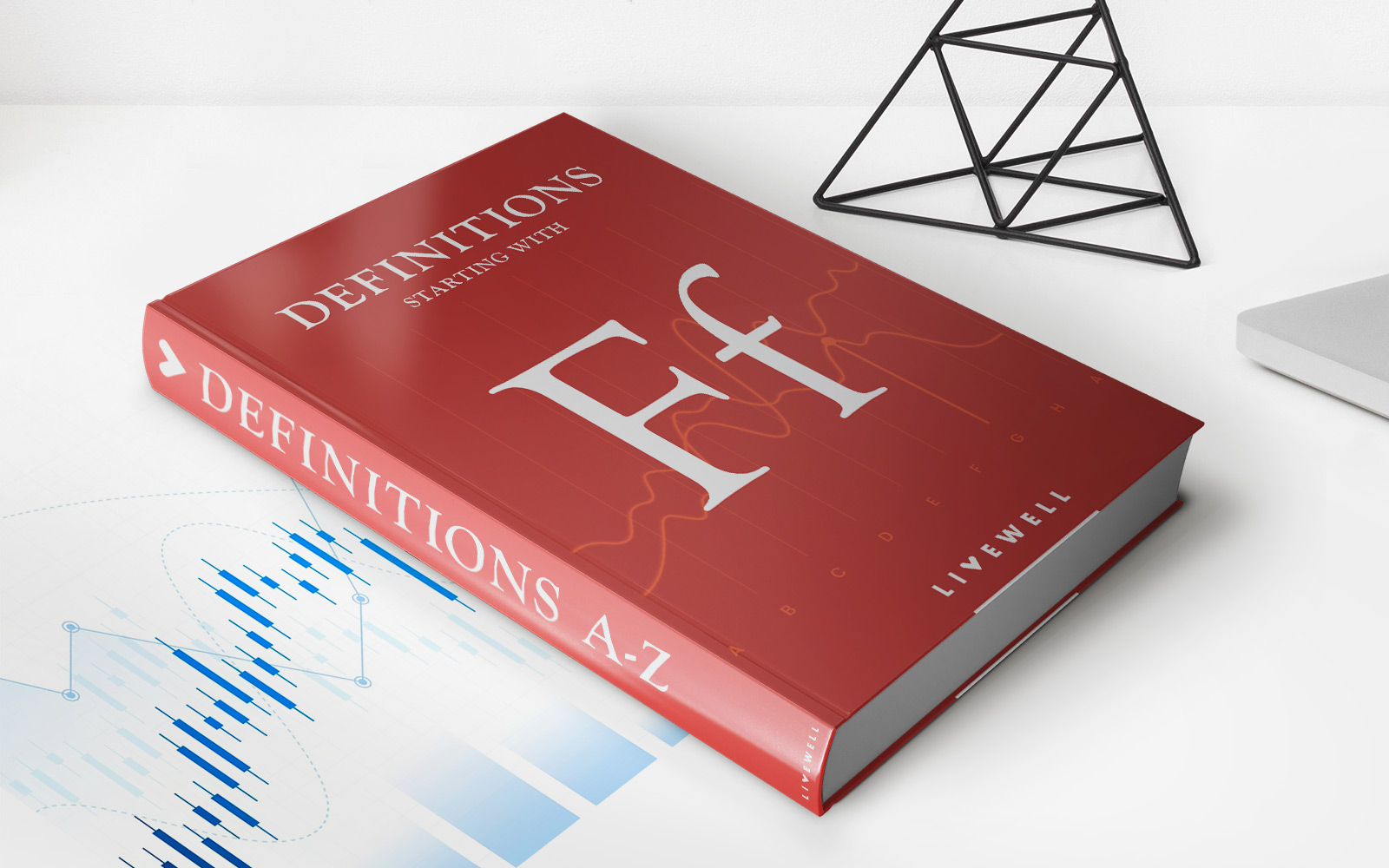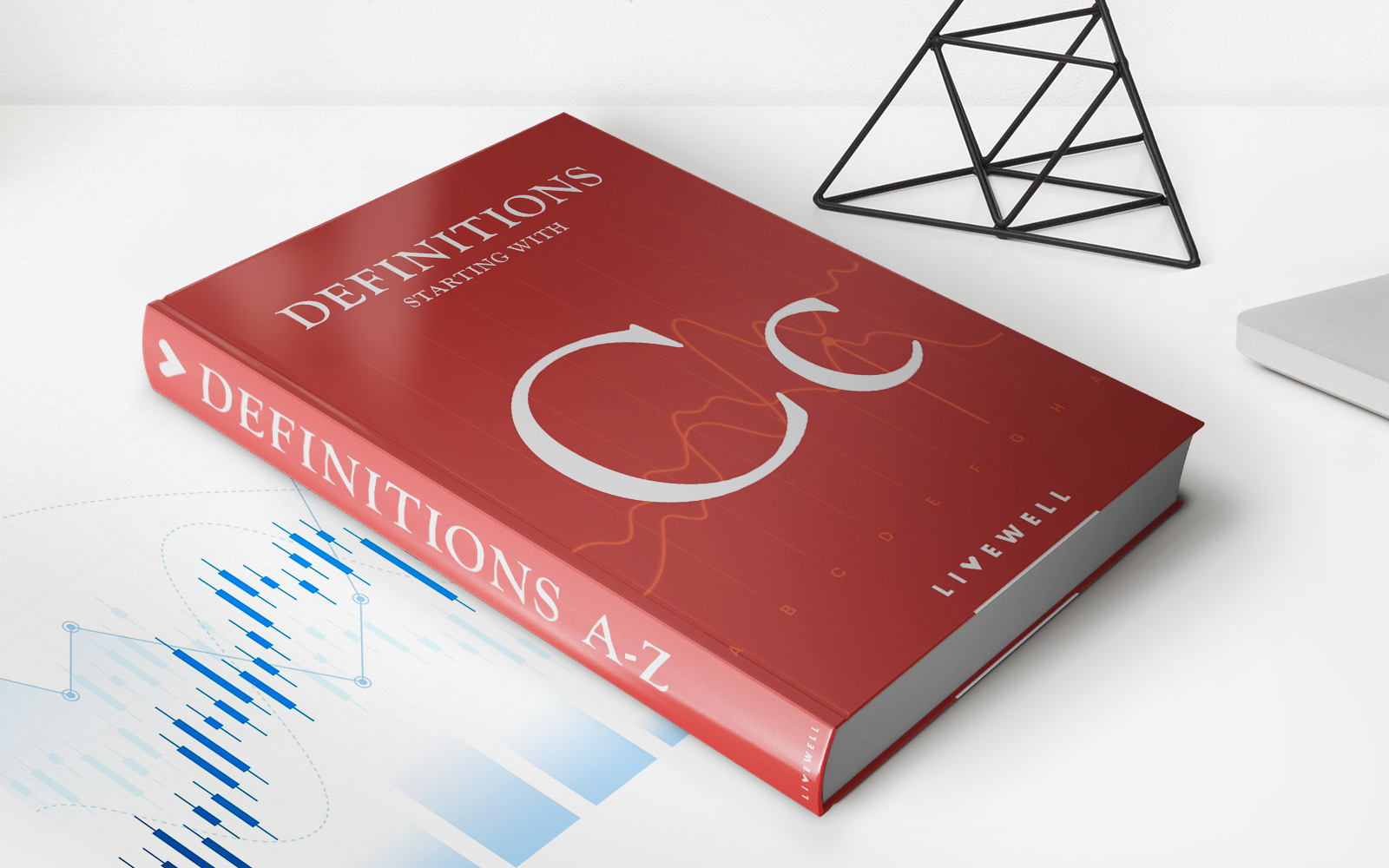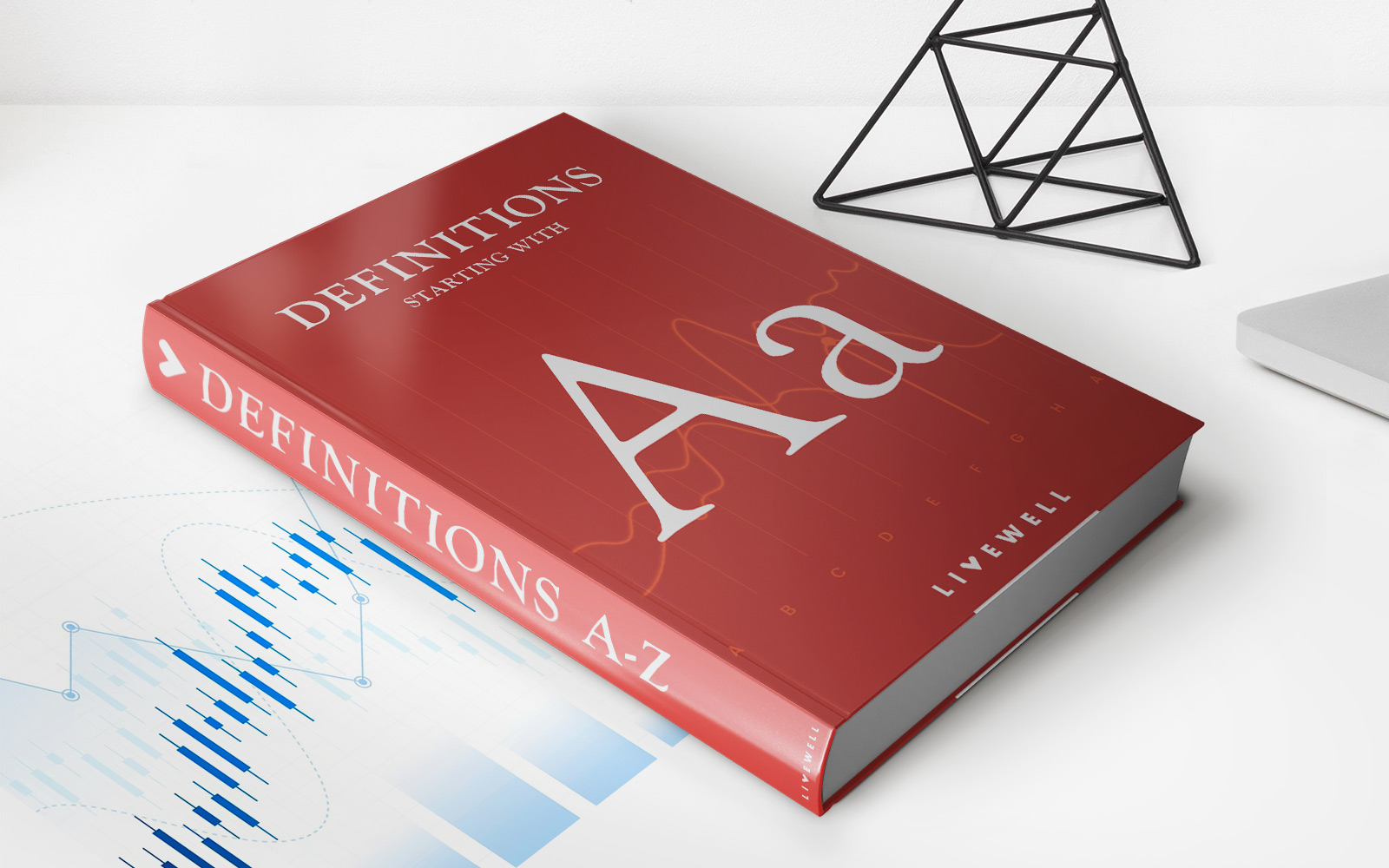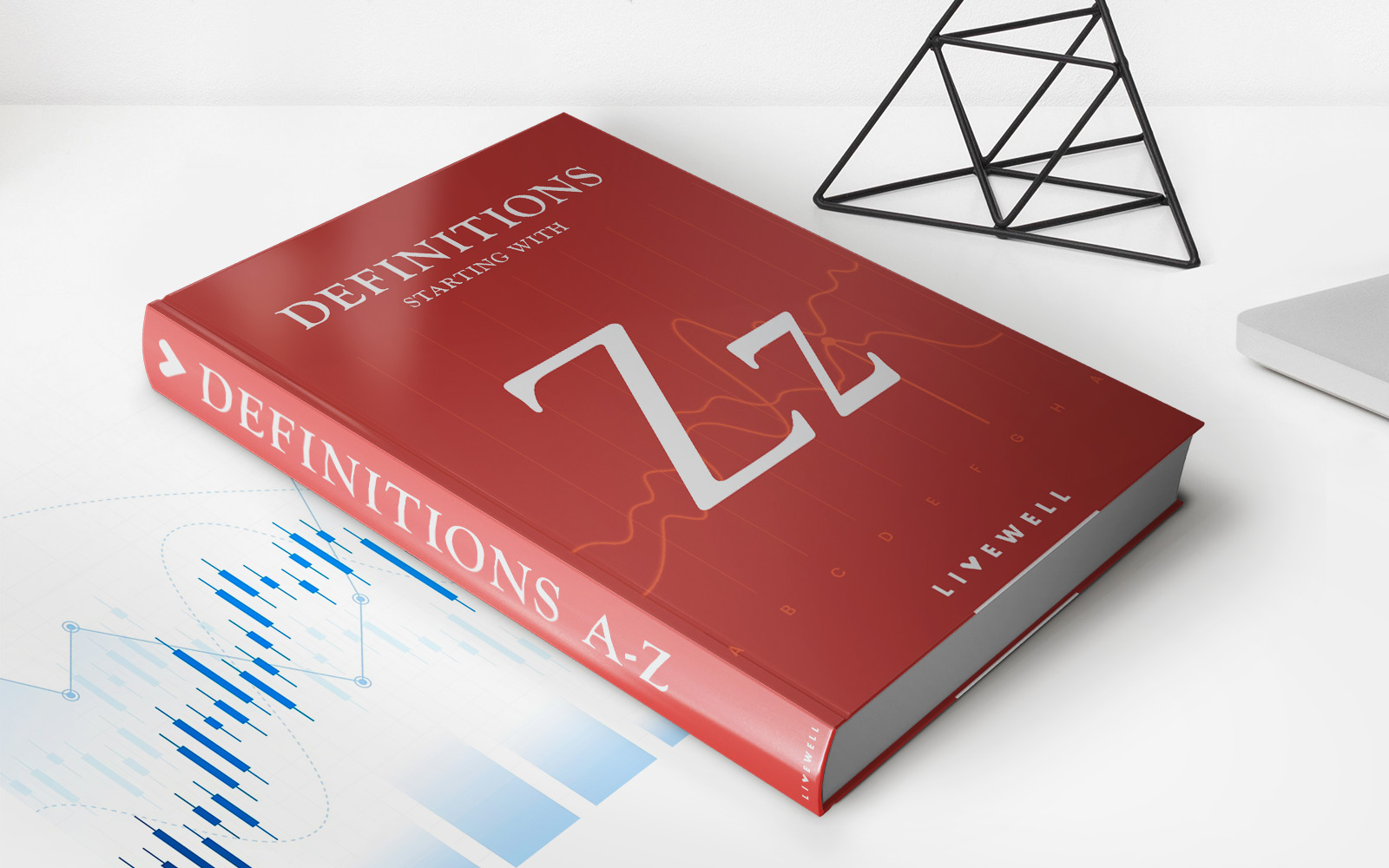Home>Finance>How To Find Out If A Deceased Person Has A 401K


Finance
How To Find Out If A Deceased Person Has A 401K
Published: October 17, 2023
Discover if a deceased person had a 401K and learn about their financial status. Get guidance on handling their finances and assets.
(Many of the links in this article redirect to a specific reviewed product. Your purchase of these products through affiliate links helps to generate commission for LiveWell, at no extra cost. Learn more)
Table of Contents
Introduction
When a person passes away, there are numerous financial matters that need to be addressed, including the handling of retirement savings. One common type of retirement account is a 401K. A 401K is a tax-advantaged investment account offered by employers to help employees save for their retirement. It allows individuals to contribute a portion of their pre-tax income, and many employers also provide matching contributions to encourage participation.
But what happens to a deceased person’s 401K? It is essential to be aware of any retirement accounts left behind by a loved one, as they can play a significant role in the estate settlement process and provide much-needed financial support to beneficiaries. However, finding out if a deceased person had a 401K can be a complex task.
In this article, we will explore the importance of knowing if a deceased person had a 401K and provide you with step-by-step methods to find out this information. Whether you are a family member or a legal representative of the deceased, understanding these methods will help you navigate the process more effectively and ensure that any retirement funds are properly accounted for.
Knowing if a deceased person had a 401K is crucial for several reasons. First and foremost, it helps determine the total value of the deceased’s estate. This information allows the executor of the estate to accurately assess the assets and liabilities, calculate the inheritance tax, and allocate the remaining assets to the beneficiaries according to the will or intestate laws.
Moreover, the 401K account may include employer matching contributions, which can significantly increase the value of the retirement savings. By identifying the existence of a 401K, beneficiaries can claim their rightful share of the funds or rollover the account into their own retirement savings to continue reaping the benefits.
Additionally, understanding whether a deceased person had a 401K allows for proper financial planning. It enables the family to make informed decisions regarding the management and distribution of the retirement savings. This is especially important in cases where the deceased person has dependents or financial obligations that need to be addressed.
In the following sections, we will outline some effective methods for finding out if a deceased person had a 401K, ranging from reviewing personal documents and contacting the employer to searching online databases and seeking professional assistance. By following these steps, you can ensure that no retirement accounts are overlooked and that the estate settlement process proceeds smoothly.
Understanding 401K
Before delving into the methods for finding out if a deceased person had a 401K, it is crucial to have a solid understanding of what a 401K is and how it works.
A 401K is a type of retirement savings plan that allows employees to save and invest a portion of their pre-tax income for their retirement years. It is named after the section of the Internal Revenue Code that governs these types of accounts. 401K plans are typically sponsored by employers, who may also provide matching contributions to incentivize employee participation.
One of the primary advantages of a 401K is its tax benefits. Contributions made to a 401K are tax-deferred, which means that the individual does not pay taxes on the contributions or any investment gains until they withdraw the funds during retirement. This tax-deferred growth allows the invested funds to potentially grow at a faster rate than in a taxable account.
There are certain limitations imposed on 401K accounts. The Internal Revenue Service (IRS) sets annual contribution limits, which can vary from year to year. As of 2021, the maximum amount an individual can contribute to a 401K is $19,500, with an additional catch-up contribution of $6,500 for individuals aged 50 and older.
Another important aspect of 401K plans is employer matching contributions. Many employers offer to match a percentage of their employees’ contributions to encourage participation and help them grow their retirement savings faster. The employer may have specific vesting rules, which determine how long an employee must stay with the company to fully own the employer’s contributions.
It is important to note that 401K accounts are typically subject to distribution rules. Withdrawals made before the age of 59½ may be subject to early withdrawal penalties and taxation. However, there are some exceptions to these rules, such as financial hardship withdrawals or withdrawals for specific qualified expenses.
When a person passes away, their 401K account becomes part of their estate. The account can then be distributed to the named beneficiaries or handled according to the decedent’s will or intestate laws. Understanding how 401K accounts operate is crucial for identifying them during the estate settlement process and ensuring that the beneficiaries receive the rightful share of the retirement savings.
With a solid understanding of what a 401K is and its key features, we can now move on to exploring the methods for finding out if a deceased person had a 401K.
Importance of Knowing if a Deceased Person has a 401K
When a loved one passes away, the financial implications can be overwhelming. In addition to managing funeral expenses and settling outstanding debts, it is important to determine if the deceased person had a 401K. Knowing if a deceased person had a 401K is of significant importance for several reasons.
Firstly, a 401K account holds funds that can be crucial for the financial stability of the deceased person’s beneficiaries. These retirement savings can provide much-needed financial support, especially if the deceased person was the primary breadwinner in the family. By identifying the existence of a 401K, the beneficiaries can gain access to these funds and utilize them to cover immediate expenses or plan for their own financial future.
Secondly, a 401K account often includes employer matching contributions. These additional funds can significantly boost the total value of the retirement savings. Knowing if a deceased person had a 401K ensures that the beneficiaries are aware of these employer contributions and can claim their rightful share. This can have a profound impact on their long-term financial well-being and can help secure their own retirement years.
Moreover, understanding if a deceased person had a 401K is vital for proper estate planning and asset distribution. The value of the 401K account must be included in the overall assessment of the deceased person’s estate. This information enables the executor of the estate to accurately determine the assets and liabilities, calculate the inheritance tax, and ensure that the remaining assets are appropriately distributed to the beneficiaries according to the will or intestate laws.
Additionally, a 401K account may have specific beneficiary designations. These designations outline who will receive the retirement funds upon the account holder’s death. By knowing if a deceased person had a 401K, the beneficiaries can claim their entitlement and ensure that the account is transferred to their name or distributed as per the decedent’s wishes.
Moreover, a 401K account can have an impact on the overall financial planning of the deceased person’s family. It helps in assessing the financial resources, liabilities, and obligations that need to be accounted for. This information is essential for managing the financial affairs of the family, including ongoing expenses, debt repayment, and future financial goals.
In summary, knowing if a deceased person had a 401K is crucial for the financial well-being of the beneficiaries and the proper settlement of the estate. It allows for the identification and utilization of retirement funds, including employer contributions, and helps in planning for the future. By understanding the importance of this information, you can proceed with the necessary steps to find out if a deceased person had a 401K.
Steps to Find Out if a Deceased Person has a 401K
Discovering whether a deceased person had a 401K requires diligent research and proactive steps. By following these methods, you can increase the chances of identifying any existing 401K accounts and ensure that they are properly handled in the estate settlement process.
Method 1: Reviewing Personal Documents:
Start by examining the deceased person’s personal documents, such as bank statements, investment statements, and tax returns. Look for any indications of a 401K account, including contributions or distributions related to retirement savings. Additionally, check for any documentation related to the deceased person’s employment, as it may mention the availability of a 401K benefit.
Method 2: Contacting the Employer:
Reach out to the deceased person’s employer to inquire about the existence of a 401K account. Contact the human resources department or the benefits administrator to obtain information regarding the deceased person’s enrollment, contributions, and beneficiary designations. Provide the necessary documentation, such as a death certificate and proof of your legal authority, if required.
Method 3: Searching Online Databases:
Utilize online resources to search for any potential 401K accounts associated with the deceased person’s name. Some online databases compile public records and financial information, which can help in identifying retirement accounts. However, exercise caution in providing personal information and ensure that you are using reputable and secure websites.
Method 4: Seeking Professional Help:
If you are encountering challenges in uncovering a 401K account, consider consulting a financial advisor, estate attorney, or a professional specializing in probate and estate settlement. These professionals have experience in navigating such situations and can provide valuable guidance on locating and handling 401K accounts as part of the estate.
By following these steps and combining different methods, you can effectively determine if a deceased person had a 401K. Remember to gather all necessary documentation, communicate with the relevant parties, and seek professional assistance, if needed.
It is crucial to note that time is of the essence when it comes to finding and managing 401K accounts after a person’s passing. The sooner you begin the search for a 401K and initiate the necessary procedures, the smoother the process will be in ensuring that the retirement savings are properly addressed in the estate settlement.
By being proactive and thorough in your efforts, you can gain clarity on the 401K status and ensure that the beneficiaries receive their rightful share of the deceased person’s retirement funds.
Method 1: Reviewing Personal Documents
One of the first steps to find out if a deceased person had a 401K is to review their personal documents. These documents can provide valuable information about their financial accounts, including any potential retirement savings.
Start by examining the deceased person’s bank statements, investment statements, and tax returns. Look for any evidence of contributions or distributions related to a 401K account. Some common indicators include regular deductions labeled as “401K contributions” or payments received from a retirement account.
In addition to financial statements, check for any documentation related to the deceased person’s employment history. This may include offer letters, employee handbooks, or any communication from the employer regarding retirement benefits. Look for mentions of a 401K program, including details about eligibility, contribution matching, and enrollment process.
If the deceased person had a designated filing system, look for folders or files labeled “Retirement” or “Savings.” These may contain important documents pertaining to their 401K account, such as enrollment forms, beneficiary designations, or statements from the retirement plan administrator.
It is important to note that personal documents may also provide clues about the deceased person’s participation in other retirement plans, such as an Individual Retirement Account (IRA) or a pension plan. This information can be helpful in assessing the overall retirement savings picture and ensuring that all relevant accounts are accounted for.
If you are unable to locate any decisive information in the personal documents, consider expanding your search to include other potential sources. This can include contacting the deceased person’s financial advisor, speaking with close family members or friends who may have knowledge about their retirement savings, or checking if they had any online accounts with financial institutions where they could have held a 401K.
Remember to handle the deceased person’s personal documents with care and respect their privacy. If you are not the designated executor of the estate, it is important to obtain proper authorization before accessing any sensitive information.
By carefully reviewing personal documents, you can gather valuable information that may indicate the presence of a 401K account. While this method may not provide a definitive answer, it is an essential starting point in your quest to find out if the deceased person had a 401K and navigate the estate settlement process effectively.
Method 2: Contacting the Employer
Another essential method to find out if a deceased person had a 401K is by reaching out to their former employer. The employer can provide valuable information regarding the deceased person’s enrollment in a 401K plan and the status of their retirement savings.
Start by identifying the deceased person’s previous employer or employers. Compile a list of companies they worked for and gather any relevant employment documents, such as offer letters, pay stubs, or W-2 forms, which can help verify their employment history.
Once you have a list of employers, locate their contact information, such as phone numbers or email addresses, for the human resources department or the benefits administrator. In some cases, this information may be available through the company’s website or by conducting a simple online search.
Contact the human resources department or benefits administrator and inform them of the deceased person’s passing. Provide them with necessary details, such as the name, Social Security number, and date of death, to assist them in locating the person’s employment records and benefits information.
During the conversation, ask specific questions related to the 401K program, including whether the deceased person was eligible for the plan, the duration of their participation, and the contribution status. Inquire about any employer matching contributions that may have been made to the account and obtain details on vesting rules, which determine how long an employee must stay with the company to fully own the employer’s contributions.
Remember to be prepared to provide the necessary documentation to the employer, such as a copy of the death certificate and proof of your legal authority, if required, as employers take privacy and security matters seriously.
If the employer confirms the existence of a 401K account, ask for instructions on how to proceed. They may provide you with the necessary forms to claim the funds or initiate the distribution process. In some cases, the employer may direct you to the retirement plan administrator for further assistance.
Keep in mind that different employers have varying policies and procedures regarding the handling of deceased employees’ benefits. It is essential to remain patient and prepared to follow any necessary steps outlined by the employer or plan administrator to access the information and claim the 401K funds.
By contacting the deceased person’s former employer, you can gather crucial information about their 401K account and ensure that you have a complete understanding of their retirement savings. This method is vital in the process of finding out if a deceased person had a 401K and serves as a crucial step towards properly addressing their retirement funds in the estate settlement process.
Method 3: Searching Online Databases
Searching online databases can be a useful method to find out if a deceased person had a 401K. These databases compile public records and financial information that can help in identifying retirement accounts associated with the individual.
Start by conducting a search using the deceased person’s full name, including any variations or alternate spellings. This can help uncover any potential matches in the online databases. Use reputable and secure websites that specialize in financial records and public information.
There are various online tools and databases available that can assist in the search for retirement accounts. Some websites provide access to public records, financial disclosures, and associated government filings. These sources may include information about retirement plans, including 401K accounts.
When using online databases, exercise caution and protect sensitive personal information. Make sure to use reputable websites and verify their credibility before inputting any personal details. It is important to prioritize privacy and security while conducting online searches.
While searching online databases can be beneficial, it is important to note that these databases may not always provide comprehensive results. Some retirement accounts, including 401Ks, may not be publicly accessible or may not be included in the databases. Therefore, it is best to consider this method as one part of a comprehensive approach to finding out if a deceased person had a 401K.
Keep in mind that the accuracy and availability of information in online databases can vary. Some databases may require payment or a subscription to access detailed records. As such, it is important to evaluate the usefulness of each database and weigh the potential benefits against any associated costs.
If you find information indicating the deceased person had a 401K, it is advisable to verify the findings by cross-referencing with other sources. This can include reviewing personal documents or contacting the employer to obtain accurate and up-to-date information about the account.
By utilizing online databases, you can broaden your search for a potential 401K account associated with the deceased person. While it may not guarantee availability or accessibility of the information, it serves as an additional resource to consider in your endeavor to find out if the deceased person had a 401K and properly handle their retirement funds.
Method 4: Seeking Professional Help
If you are encountering challenges or need assistance in finding out if a deceased person had a 401K, seeking professional help can be an excellent option. Professionals specializing in probate and estate settlement, such as estate attorneys or financial advisors, can provide guidance and expertise throughout the process.
1. Financial Advisor: A financial advisor can be a valuable resource when it comes to locating and managing retirement accounts. They have expertise in navigating the complexities of retirement planning and can assist in identifying potential 401K accounts associated with the deceased person. They can also help in understanding the tax implications and financial implications of the 401K during the estate settlement process.
2. Estate Attorney: An estate attorney specializes in probate and estate matters, including the settlement of retirement accounts. They can provide guidance on legal procedures, necessary documentation, and ensure compliance with relevant laws and regulations. An estate attorney can also assist in contacting the deceased person’s employer or plan administrator to obtain information about the 401K account and guide you on the best course of action for handling the funds.
3. Probate Specialist: A probate specialist is knowledgeable about the specific procedures and requirements involved in settling an estate, including the distribution of retirement funds. They can help navigate the legal complexities, prepare the necessary paperwork, and represent your interests throughout the process. Their expertise can ensure that all necessary steps are taken to find and handle the deceased person’s 401K.
When seeking professional help, ensure that you choose individuals or firms with experience in probate and estate settlement. It is crucial to communicate your specific needs and concerns regarding the identification and handling of the 401K account. The professionals will be able to provide tailored advice and assist you in the best way possible.
While seeking professional help comes with associated costs, the expertise provided can be invaluable in ensuring a smooth and efficient process for locating and managing a deceased person’s 401K. It can alleviate the burden of navigating complex legal and financial matters, providing peace of mind for the executor of the estate and the beneficiaries.
Remember that professional assistance can be sought at any stage of the process. Whether you are just beginning your search or encountering difficulties along the way, professionals can provide the guidance and support required to find out if a deceased person had a 401K and handle the retirement funds appropriately.
By seeking professional help, you can leverage their knowledge and expertise to navigate the complexities of finding and managing a deceased person’s 401K, ensuring that the retirement funds are properly accounted for and distributed in accordance with the decedent’s wishes and legal regulations.
Conclusion
Discovering whether a deceased person had a 401K is a crucial step in the estate settlement process. The knowledge of the existence of a 401K account can have a significant impact on the financial well-being of the deceased person’s beneficiaries and enable proper distribution of retirement funds.
In this article, we have discussed the importance of knowing if a deceased person had a 401K, highlighting how it can provide financial support to the beneficiaries, unlock additional employer contributions, aid in estate planning, and assist in the overall financial management of the family.
We have also explored four methods to find out if a deceased person had a 401K. These methods include reviewing personal documents, contacting the employer, searching online databases, and seeking professional help. By employing a combination of these methods, you can maximize your chances of identifying any existing 401K accounts and ensure that they are properly addressed during the estate settlement.
It is crucial to approach the process with diligence, patience, and respect for the deceased person’s privacy. Reviewing personal documents, contacting the employer, utilizing online databases, and seeking professional help are all essential steps that can provide valuable insights and guidance in finding out if a deceased person had a 401K.
Remember that the estate settlement process can be complex, and it may be necessary to consult professionals such as financial advisors, estate attorneys, or probate specialists to navigate the intricacies and legal requirements involved in managing retirement accounts.
By taking the time to understand the significance of a 401K, employing appropriate methods, and seeking the necessary assistance, you can ensure that the deceased person’s retirement funds are properly located, accounted for, and distributed to the intended beneficiaries according to their wishes and applicable laws.
Finally, it is important to remain proactive in your approach. The sooner you begin the process of finding out if a deceased person had a 401K, the smoother the estate settlement will be, and the faster the beneficiaries can access the financial support they need.
Through careful research, effective communication, and proper handling of documentation, you can navigate the task of finding out if a deceased person had a 401K with confidence and ensure that their retirement funds contribute positively to the financial well-being of their loved ones.














